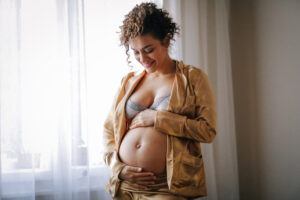What Does Diminished Ovarian Reserve Mean?
What Does That Really Mean?
For women starting fertility treatment, your ovarian reserve is one of the first things your fertility specialist will assess. What is your ovarian reserve, and what does it mean if it’s diminished? Can you still get pregnant?

Ovarian Reserve
Technically speaking, your ovarian reserve is a measure of the quality and quantity of your eggs. Every baby who is identified female at birth is born with all the eggs she will ever have, somewhere between 500,000 and 1 million. The number and quality of these eggs are depleted over time, which is a natural part of aging. Sometimes a woman’s ovarian reserve can also be diminished by injury or disease, by cancer treatment or if you are pre-menopausal.
Diminished Ovarian Reserve
Whatever the cause, when the number and quality of eggs is low enough to cause fertility problems, it’s called diminished ovarian reserve. Diminished ovarian reserve is present in up to 30 percent of women who seek fertility treatment. It’s especially common in women age 40 or older, but may happen in younger women as well. Basically, it means that your ovaries aren’t regularly producing eggs of good quality which then ripen and are capable of being fertilized and implanting in your uterus, all of which are necessary to get pregnant. It’s natural for this to happen as you get older.A reproductive endocrinologist will use blood tests to look for signs of diminished ovarian reserve. Some of these tests are done on the second or third day of your menstrual cycle to measure levels of follicle stimulating hormone (FSH) and estradiol, hormones which help control your cycle and the production of eggs. Another blood test measures anti-Mullerian hormone (AMH), which is another measure of your fertility and indicates the approximate number of eggs available. Your fertility specialist may also use a transvaginal ultrasound to assess the number of follicles on your ovaries.
Fertility Treatments
Your age and these test results help determine what kind of fertility treatment is more likely to work for you. Patients with diminished ovarian reserve often need higher doses of fertility medications to stimulate egg production for IVF treatment. If you don’t respond to ovarian stimulation or you don’t succeed with IVF with your own eggs, you may want to consider donor eggs to become pregnant. Older women who use eggs donated by young women have about the same success rate with IVF as younger women using their own eggs, as high as 50 percent. You and your partner will need to agree to use donor eggs, and you both will need counseling before you make a decision.




